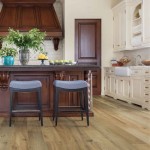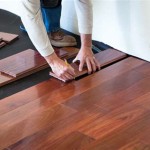Porcelain Tiles For Bathroom Floor
Bathroom flooring is a crucial element that contributes to both functionality and aesthetics. Porcelain tiles have emerged as a popular choice for bathroom floors due to their exceptional durability, low maintenance, and versatility. These tiles are composed of refined clay, quartz, and feldspar, fired at high temperatures to create a dense, non-porous surface.
Benefits of Porcelain Tiles for Bathroom Floors:
Durability: Porcelain tiles are incredibly durable, resistant to scratching, chipping, and cracking. They can withstand heavy foot traffic and everyday wear and tear, making them ideal for busy households.
Water Resistance: Porcelain tiles have an extremely low water absorption rate, making them virtually waterproof. This resistance protects against water damage and prevents moisture from seeping through, ensuring a safe and hygienic bathroom environment.
Stain Resistance: Porcelain tiles are non-porous and do not easily absorb stains. Spills and dirt can be easily wiped away, maintaining the tiles' pristine appearance over time.
Low Maintenance: Porcelain tiles are low maintenance and easy to clean. Regular sweeping and mopping with a mild cleaner is sufficient to keep them looking their best.
Versatility: Porcelain tiles come in a wide range of colors, patterns, and textures, providing ample design options. They can mimic the look of natural stone, wood, or concrete, allowing for customization to suit any bathroom style.
Choosing the Right Porcelain Tiles for Your Bathroom:
When selecting porcelain tiles for your bathroom floor, consider the following factors:
Size: Tiles come in various sizes, including large format tiles that can create a seamless, grout-free look, or smaller tiles that can add visual interest.
Finish: Porcelain tiles are available in different finishes, such as matte, semi-matte, or glossy. Matte finishes provide a non-slip surface, while glossy finishes reflect light and create a more luxurious look.
Texture: Some porcelain tiles feature textured surfaces for added grip and to prevent slipping, especially in shower areas.
Grout: Grout is the material used to fill the joints between tiles. Choose a grout color that complements the tiles and consider using epoxy grout for increased durability and stain resistance.
Installation: Professional installation is recommended for porcelain tiles to ensure proper alignment and longevity. A qualified installer will use the correct adhesives and leveling systems to create a secure and long-lasting floor.
By carefully considering these factors and consulting with a professional, you can create a beautiful and functional porcelain tile floor for your bathroom that will provide years of enjoyment.

Reasons To Choose Porcelain Tiles For Your Bathroom Floor Cdk Integrated Industries

What Is Porcelain Tile Flooring America

Popular Porcelain Tile Trends For Bathrooms Msi Blog

Modern Bathroom Tiles Designs For Wall And Floor

Pros And Cons Of Porcelain Tile For Bathroom Floor Cosmos Surfaces

Porcelain Tile Bathroom Floors Hgtv

A Comprehensive Guide To Choosing Porcelain Bathroom Floor Tiles Flooring And Design

Is Ceramic Or Porcelain Tile Better For A Bathroom Floor

Hot Style Chinese Gray Rustic Walls And Floors Glazed Bathroom Floor Tiles Tile Porcelain Made In Com

Popular Porcelain Tile Trends For Bathrooms Msi Blog








